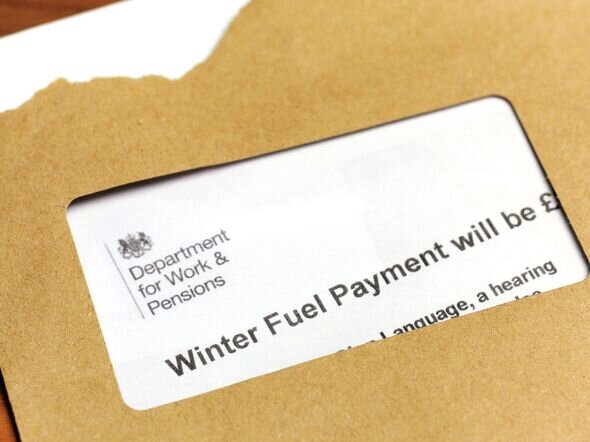Lets get started...
The 2026 tax landscape is shifting for property investors. If you own rental properties, you’ll need to get ready for some important changes to how capital gains are reported and taxed. These changes specifically relate to capital gains tax (CGT) on residential property sales, including homes and buy-to-let investments.
These changes will affect how you report profits when selling your residential property, such as buy-to-let properties. Getting ahead of these updates now could save you significant headaches and potentially reduce your tax liability later.
Many landlords remain unaware of what’s coming down the pipeline. That’s precisely why we’ve put together this straightforward guide to help you prepare for the new requirements.

What Exactly is Buy to Let Capital Gains Self Assessment 2026?
Buy to let capital gains self assessment 2026 refers to the new way landlords will need to report and pay tax when they sell rental properties from 2026 onwards. Landlords will also need to pay capital gains tax when selling UK residential property, ensuring they meet HMRC requirements for reporting and payment. It’s part of HMRC’s ongoing plan to modernise how property investment profits are taxed.
The changes aim to make reporting more straightforward but might mean more frequent tax obligations for property investors. The new system will apply to disposals of UK residential property, and the annual exempt amount will still be relevant for reducing taxable gains.
Additionally, the new system will connect with Making Tax Digital, requiring landlords to maintain better digital records of their property transactions. Paper tax returns will be phased out, and all reporting will be digital. Landlords must also pay income tax on rental profits and other income, and these must be reported alongside capital gains.
You’ll need to provide more detailed information about your property sales, including precise dates of acquisition and disposal, as well as comprehensive records of improvements you’ve made to properties over the years.
When Will You Need to Report Your Property Sales on Your Self Assessment Tax Return?
From 2026, you’ll still need to report property sales on your annual self assessment tax return. However, the current 60-day reporting window after selling a property will continue alongside this annual requirement, so it remains important to report and pay CGT within the deadline to avoid issues.
Digital reporting will become mandatory for everyone, with paper forms likely to be phased out completely. This shift aligns with HMRC’s broader digital strategy and aims to streamline the reporting process.
If you miss these deadlines, automatic penalties will apply without exception. In addition, if you fail to pay CGT on time, you may have to pay interest and could face an increased assessment tax bill. In some cases, if you are unable to pay your CGT bill in full, you may be able to arrange to pay your CGT bill in instalments.
HMRC is expected to increase compliance checks on property transactions, making timely and accurate reporting more crucial than ever.

What Records Will You Need to Keep?
You’ll need comprehensive proof of when you bought the property and how much you paid for it. Be sure to record both the property value at purchase and the current market value, as these are crucial for accurate capital gains calculations. This includes all associated acquisition costs such as legal fees, stamp duty and initial property improvements.
For investment property owners, property expenses, agency fees, and mortgage interest may also be relevant when calculating your overall costs and tax position. Keep detailed receipts for any capital improvements you’ve made to the property. This doesn’t include regular maintenance but refers to substantial work like extensions, new kitchens, or other major renovations that add significant value.
If you inherited the property or received it as a gift, you’ll need special calculations for the “base cost” – the value used to determine your capital gain. Inheritance tax may apply, and the current market value at the time of inheritance is used for base cost calculations. These calculations can be complex, so starting early is advisable.
If you have made a loss in a previous tax year, you can carry it forward to offset against future gains, reducing your taxable amount. Digital record-keeping will become essential under the new rules. Beginning to organise your property documents now in a digital format will save considerable stress when the 2026 changes take effect. Note that special record-keeping rules may apply for furnished holiday lettings and furnished holiday lets.
How Can You Prepare for These Changes?
Get your property portfolio professionally valued now so you have a clear understanding of your position. This provides a reliable baseline and helps identify potential tax liabilities before they arise. Remember, stamp duty land tax may affect your financial planning, especially if you own overseas property.
Consider your long-term investment strategy carefully. If you’re thinking about selling multiple properties, it might be advantageous to spread sales across different tax years to manage your tax liability more effectively.
Review your ownership structures before 2026 arrives. In some circumstances, holding properties in a limited company or jointly with a spouse can offer more tax-efficient arrangements for ongoing management and eventual disposal. Managing your tax affairs is crucial, so consult a tax adviser or financial adviser for professional advice to ensure compliance and optimize your strategy.
Make absolutely certain you’re claiming all allowable expenses against your rental income. Every legitimate cost you can document reduces your taxable profit and potentially your overall tax burden. Seeking advice from a professional can help ensure you claim all available tax relief.

Limited Company Tax Implications for Landlords
Many landlords are considering, or have already moved, their rental property portfolios into limited companies to manage their tax obligations more efficiently. Understanding the tax implications of this approach is crucial, especially as the 2026 changes come into effect.
When you own rental properties through a limited company, the way you pay tax on your profits and capital gains is different from holding them personally. Instead of paying capital gains tax as an individual, any capital gains made when selling a property are subject to corporation tax. This means that, rather than the standard capital gains tax rates for individuals, your company will pay corporation tax on the entire taxable gain.
Unlike individual landlords, limited companies do not benefit from the annual capital gains tax allowance. Every pound of capital gain is taxable, so accurate calculation and record-keeping are essential. Additionally, allowable expenses and capital expenses related to the property can still be deducted before calculating the taxable gain, but the rules can be more complex for companies.
Operating through a limited company can offer tax efficient options, but it also comes with additional administrative responsibilities, such as filing annual accounts and corporation tax returns. The rules around capital gains, income tax, and corporation tax for limited companies are complex and subject to change, so it’s wise to seek professional tax advice before restructuring your property business.

Final Thoughts
The 2026 changes might seem distant, but forward-thinking landlords are already preparing their strategies. Getting your records organised now will make the transition substantially smoother when the time comes. Tax rules for property are becoming increasingly complex rather than simpler. Having appropriate tools and professional support will be crucial for navigating these changes.
Pie is the UK's first personal tax app designed specifically to help working individuals handle their tax obligations. Unlike other solutions, Pie offers integrated bookkeeping, real-time tax calculations, and simplified tax return processing. With expert advice available when needed, Pie can help landlords navigate the upcoming changes to buy to let capital gains tax.
Don't wait until 2026 to start preparing for these significant changes. The right planning implemented now could save you substantial money when the new rules come into effect.
Why not check out Pie tax today and see how they can help you get ready for the changes ahead? Their tailored approach to property tax could make all the difference to your investment returns.










